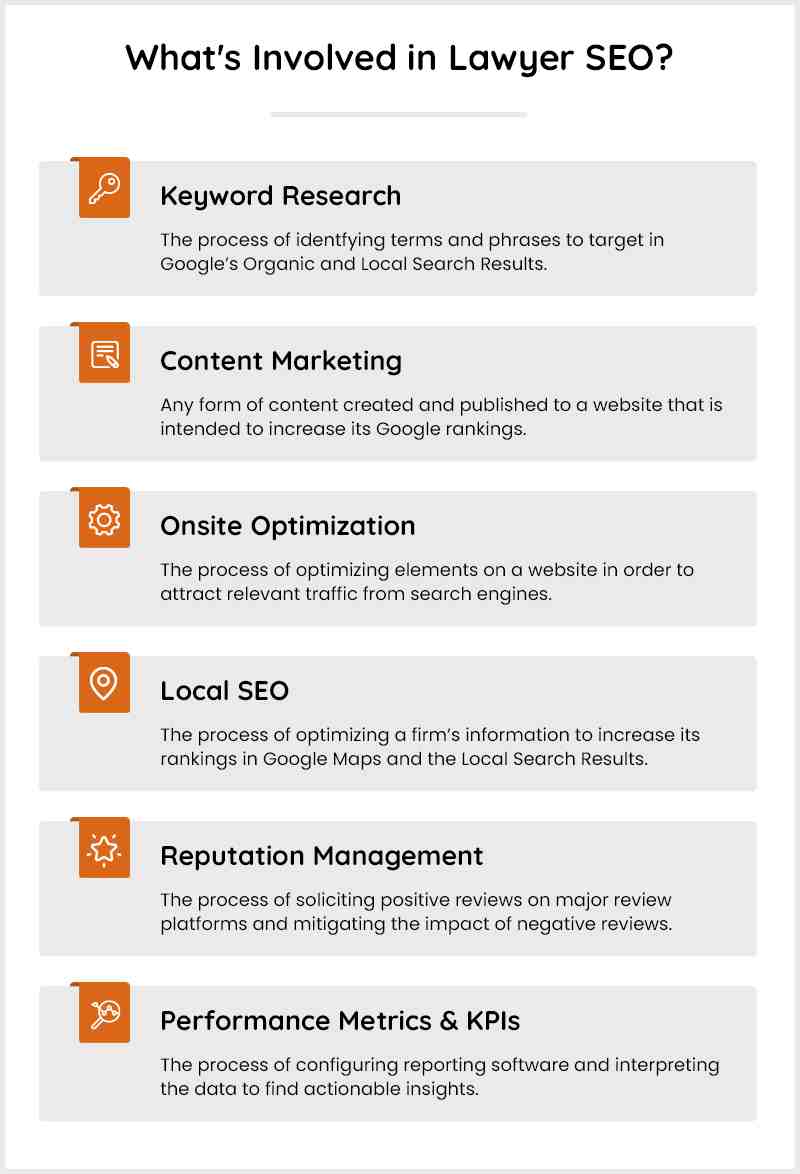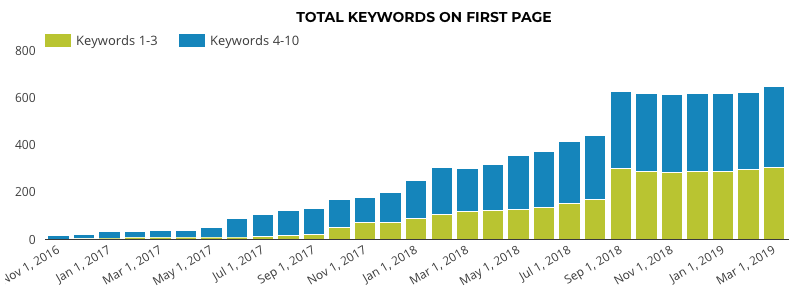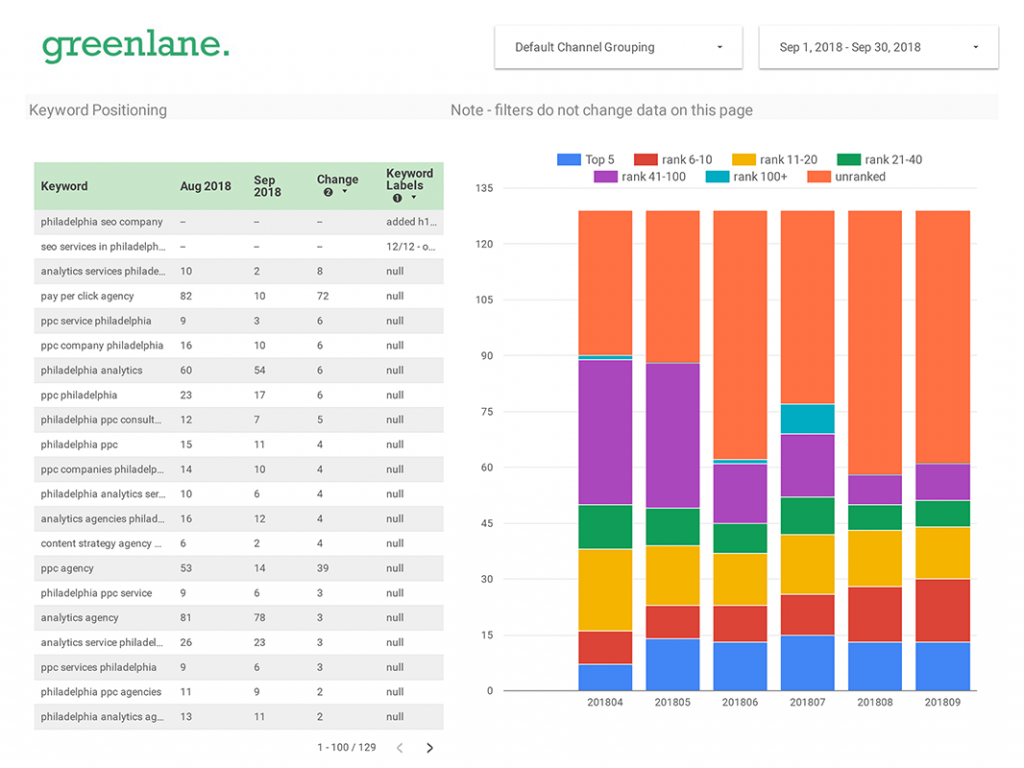Search Engine »Channel» SEO »SEO Reporting To Impress: How To Effectively Report SEO Process, Efforts and Results
Probably none of us have become SEO out of their love for reporting, in fact it’s one of the least favorite activities for many SEOs based on a survey I did some time ago.
However, decision makers care a lot about reporting as this is how we communicate and evaluate the investment in the SEO process and overall success. In fact, the effectiveness of SEO reports can be the difference between a layoff and more SEO support or a hike by decision makers.
Even so, many SEO reports are corrupted as they are simply compilation of automated dashboards with tools that contain SEO metrics. I asked on Twitter and 41% of SEOs who replied said they only use a dashboard with data for SEO reporting.
Data from our SEO dashboards can be included in the reports, but cannot replace them as a whole: the SEO dashboard is a visualization resource that contains the most important, recent state of all the metrics we want to track from our SEO process to easily monitor its progress at any time .
On the other hand, an SEO report is a document containing a set of key performance indicators from a specific period, along with an analysis and conclusions, used for periodic analysis and evaluation of the SEO process in terms of achieving its goals.
Using only automated SEO dashboards as reports can do more harm than help. They are packed with information that the public – often non-technical stakeholders or policy makers – will not understand or have an interest in, without prioritizing, insights, analyzing, or outputting actions. It just generates more questions than answering.
Receive the daily newsletters that marketers rely on.
Even personalized SEO dashboards cannot achieve all of your SEO reporting goals – especially considering that high participation SEO doesn’t always produce their reports which are as follows:
The biggest challenge in creating personalized SEO reports is the time constraints as we tend to feel the pressure of quickly creating reports to get back to ‘SEO done’, but SEO reporting is also mostly just a monthly effort.
Ready to effectively help you meet your SEO reporting goals while speeding up the process? Here are three rules that must be followed.
1. Use only meaningful KPIs that communicate your results

Reduce noise and minimize doubts thanks to the data contained in SEO reports.
Avoid using confusing proprietary metrics as they are unreliable and difficult to relate to your actual SEO goals.
Don’t add everything you monitor to your reports, just key performance indicators (KPIs) that show the progress in achieving those SEO goals your audience is actually interested in.
Therefore, the KPIs to be considered in each case should be personalized based on your audience profile and interests: the SEO goals that the CEO and CMO are keen on will be different (e.g. ROI of SEO activities, revenue and organic search market share) than these the head of SEO is interested in continuing the activities (e.g. ROI from SEO activities, revenues and organic search market share, as well as other, more technical, such as increased traffic in non-branded commercial search engines, top rankings, indexing and indexing of key pages, etc.).
For this reason, the KPIs used in reports targeting the former will be different from the latter, as well as the metrics to calculate them.
Here are a few steps and criteria to help you choose the right KPIs to include in your SEO reports:
You now have the inputs needed to start collecting data and linking SEO reports to just the right KPIs for each audience group and their understanding of the metrics. Here is a Google Planner version of the SEO report to use meaningful KPIs to further facilitate this process:
2. Ensure clear KPIs presentation to facilitate progress understanding

Efforts to present KPIs in SEO reports should not rely on “creating a nice document with beautiful charts,” but on making the presented data easy to understand and to achieve SEO reporting communication goals.
Sometimes a simpler scorecard will make it easier to understand your goals than fancy time series.
That is why it is so important to follow some best practices in data presentation and visualization when choosing how to present KPIs:
Here is a Google Sheets checklist for clear KPI data presentation that you can use to facilitate the decision-making process:
3. Leverage data storytelling to explain and drive action with your SEO reports

Storytelling about data creates compelling narratives that help your audience understand and act upon your data analysis.
As PPCexpo explains, stories attract and hold people’s attention for longer, numbers without stories can quickly become boring, and stories convey insights with more clarity. As a result, storytelling should help convey the value of the data presented.
However, it is fundamental to avoid misrepresentation of data and drawing wrong conclusions from it when using narratives.
For this, it is recommended to avoid selecting data or manipulating the scale. Always show the whole picture by providing complete visual context and keeping visual and language consistency throughout the report.
Telling your SEO reporting history should explain and prompt you to act on your data without being misleading. Even if the results are not positive, you will lose confidence otherwise.
To do this, create a convincing narrative for each KPI using the three-act structure by asking the following questions:
Then, to structure your SEO report effectively:
Also, keep in mind that there is nothing better than submitting an SEO report yourself to make it easier to understand and get feedback to improve.
SEO reporting is critical to SEO success and should be prioritized accordingly. Hope these rules, guidelines, and templates help you with that as much as they helped me.
The opinions expressed in this article are the opinions of the guest and not necessarily Search Engine Land. The list of staff authors can be found here.
New on Search Engine Land
About The Author
Aleyda Solis is an SEO & amp; Consultant Orainti founder, speaker and author who also offers SEO advice in the Crawling Mondays video series, the latest SEO resources in the #SEOFOMO newsletter, and the free SEO learning plan at LearningSEO.io. She is also the co-founder of Remoters.net, a remote work center that features a free remote work board, tools, guides, and more to improve remote work.

